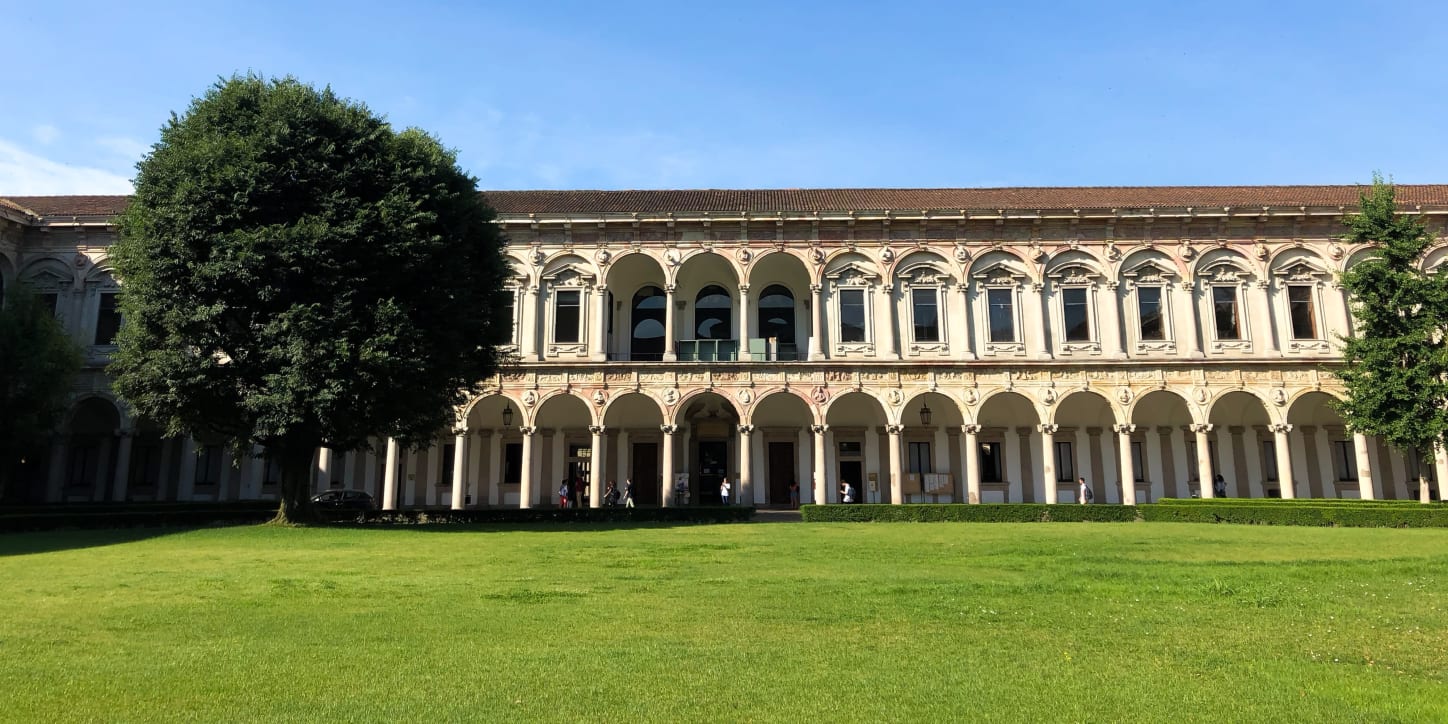
Master's Degree in Environmental and Food Economics
Milan, Italy
DURATION
2 Years
LANGUAGES
English
PACE
Full time
APPLICATION DEADLINE
25 Aug 2024
EARLIEST START DATE
Oct 2024
TUITION FEES
Request tuition fees

STUDY FORMAT
On-Campus
Introduction
The relationship between the environment, natural resources, and the agri-food system plays a central role in the development of modern societies. The issues of sustainable economic development, the management of natural and energy resources, and the sustainability of the agri-food system represent new economic and policy challenges. This Master’s degree, taught in English, provides the conceptual and analytical tools for participants to be able to address those challenges.
The Master's degree in Environmental and Food Economics provides the conceptual and analytical tools for participants to be able to address those challenges. Advanced expertise in economics and business administration and management, quantitative methods, and specific theoretical and applied knowledge in environmental and natural resource economics and in the economics and management of the agri-food chain is provided. The aim is to equip students with a solid understanding of the instruments to promote sustainable economic development, the management of natural resources (water, soil, energy), environmental and energy policies, management and innovation of the agri-food sector, internationalization of agri-food companies, food security issues and rural development. The Master's degree in Environmental and Food Economics represents a novelty in the Italian university system, by combining topics of environmental and climate change economics with the economics and management of the agri-food sector, carefully selecting the contents of its courses, and being taught entirely in English.
Gallery
Admissions
Curriculum
Year: 1
First semester
Compulsory
- Advanced Microeconomics
- Environmental Accounting and Management
- Accounting
- Environmental management
- Mathematics for Economics
Second semester
Compulsory
- Economics and Politics of the Agrifood Sector
- Agrifood economics
- International agrifood markets and policies
- Environmental and Natural Resource Economics
- Statistics and Econometrics
Year: 2
First semester
Compulsory
- Energy Economics
- Environmental and Food Law
- Global and Climate Change Economics
Second semester
Compulsory
- Economic History
- Sustainable Development
Conclusive activities
There are no specific sessions for these activities (e.g. open online courses).
Compulsory
- Stage
- Final Exam
Optional programme year
Second semester
Optional
- Food Industry Design Technology and Innovation
- Project Management for Sustainable Development
- Water Resources Sustainable Economy
Open sessions
There are no specific sessions for these activities (e.g. open online courses).
Optional
- Additional Language Skills: Italian
Program Tuition Fee
Career Opportunities
The Master's degree in Environmental and Food Economics is organized into two curricula: i. Environmental and Energy Economics; ii. Economics and Management of the Agri-Food System. The professional profiles that characterize the two curricula can be summarized as follows.
The professional profile of the Environmental and Energy Economics curriculum is more oriented to the world of institutions, both public and private, with job opportunities in national, EU, and international institutions, public administration, Energy Authorities, FAO, OECD, European Commission, public and private research organizations, and research departments of large national and multinational companies, as well as the green economy.
The professional profile of the Economics and Management of the Agri-Food System curriculum is more oriented to the world of private business with job opportunities in agri-food companies (small and medium enterprises, multinationals, GDO), as well as in producer organizations and national, EU, and international institutions that carry out research and studies in the fields of agricultural and food policies, food security, and rural development (FAO, World Bank, OECD, and the European Commission).
